Israeli giants of industry such as 3D printer Stratasys and defense technology company Elbit have spent the last eight months developing innovative solutions – not to benefit their businesses, but to ease ongoing issues faced by wounded veterans.
Restart, a nonprofit organization dedicated to improving the lives of Israel’s wounded veterans, recruited these companies to design and produce innovative solutions to the specific needs of 21 vets.
Each year, the organization’s annual Makers for Heroes program recruits teams of volunteers with relevant qualifications and knowledge to solve problems faced by the vets every day.
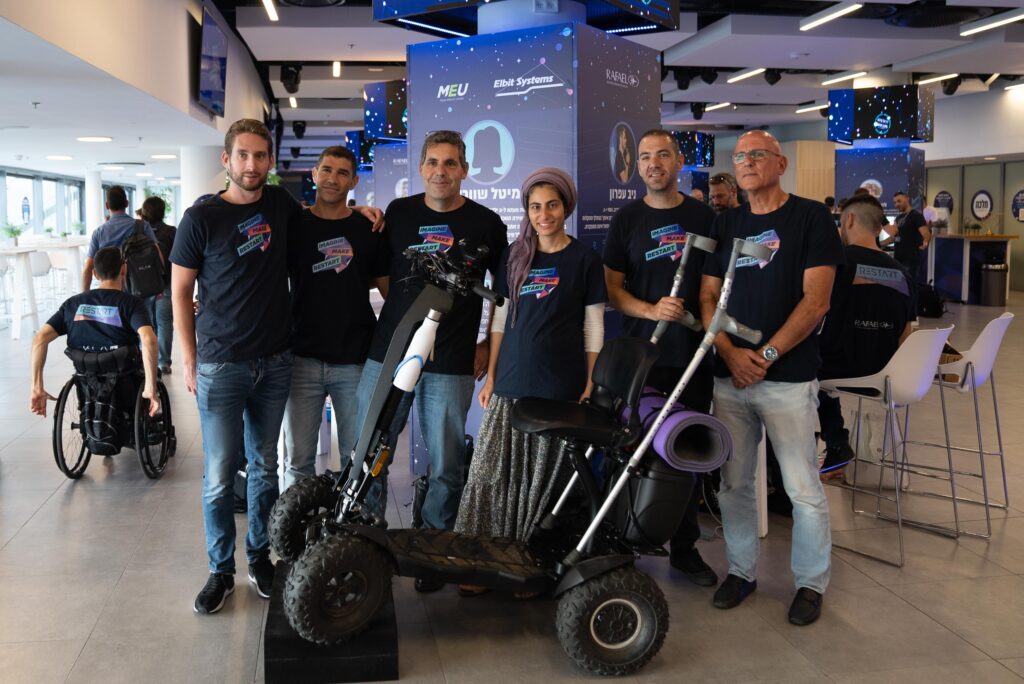
take walks with her son in nature, so her Makers For Heroes team built her a custom scooter (Courtesy)
The teams of volunteers recently unveiled their solutions to the public at the Makers for Heroes 2023 Finale, held at Bloomfield in Tel Aviv, the country’s national soccer stadium.
And this year’s turnout was the best the organization has seen so far, according to Restart COO Boaz Hochstein.
“A lot of people got to be exposed to the veterans and the challenges they’re facing, as well as the organization and the solutions we’re creating through the program,” he tells NoCamels.
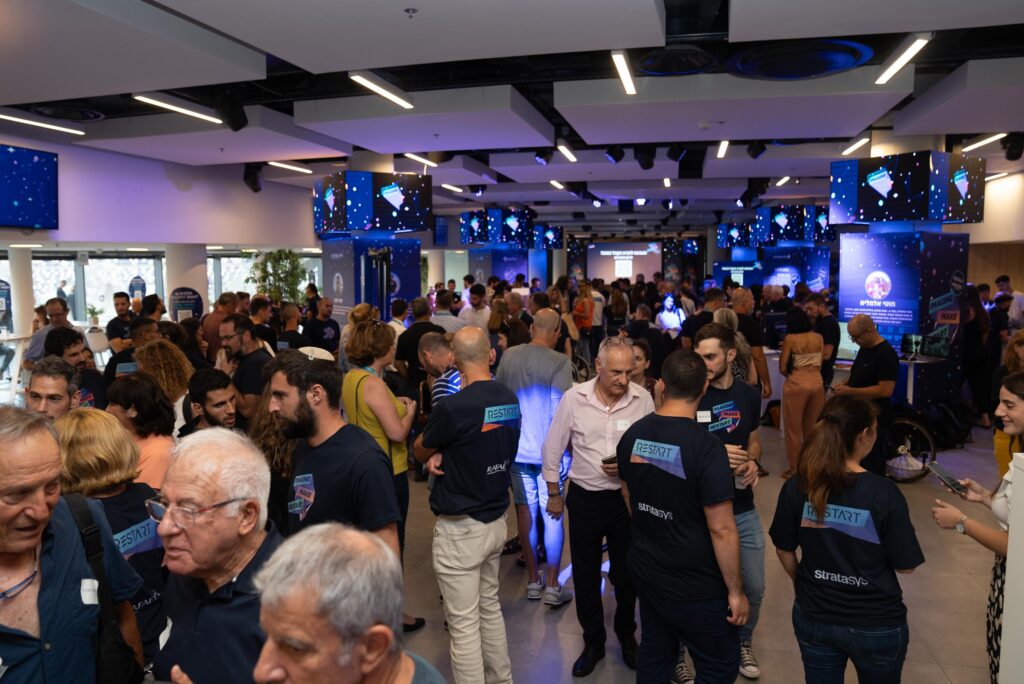
Every year, Restart uses the program to address a major challenge faced by the veteran community. This year, the organization tackled complex regional pain syndrome (CRPS) – a condition that leaves a person feeling pain that is disproportionate to their injuries, even years after they were sustained.
Himself a wounded vet, Hochstein says that while many Israeli veterans deal with CRPS, the syndrome is not truly understood outside of their community – even by medical professionals.
“We found that more and more vets have been coming to us with CRPS every year,” he says. “So this year, we chose that to be in our spotlight.”
Half of the challenges suggested by this year’s vets were directly related to the personal struggles they face due to this condition.
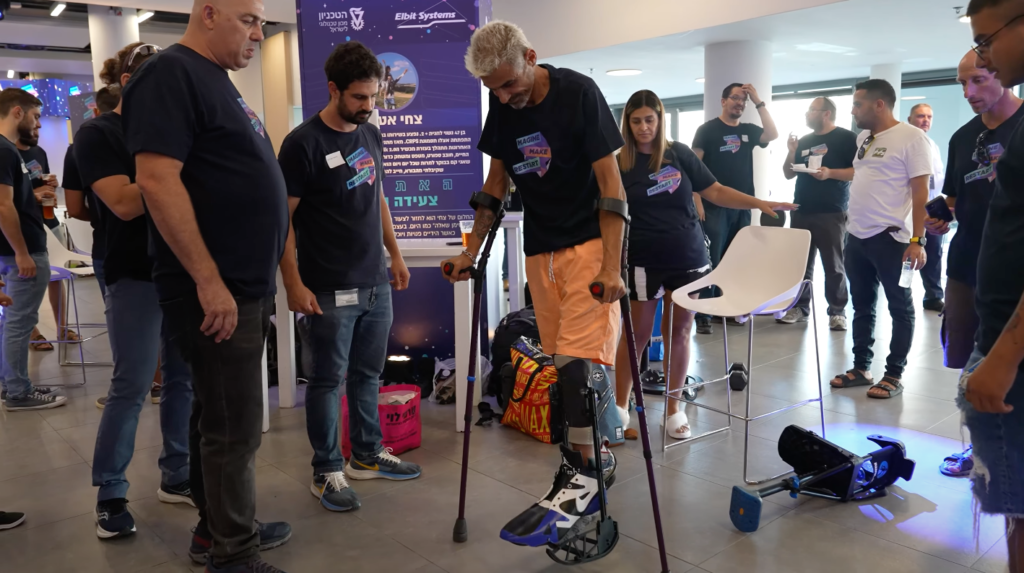
Tzahi Atedgi, 47, lost the lower part of his left leg during his service almost 30 years ago, leaving him suffering from CRPS. He had not been able to stand on his leg without deeply hunching his back, and relied on a wheelchair or uncomfortable crutches for mobility.
His dream to stand straight on his leg without pain was made a reality by his team at Restart, which included volunteer specialists from Elbit.
Tzahi’s tailor-made solution came in the form of a leg brace that supports his knee, straightens his leg and elevates his foot so that he can walk with his crutches without feeling pain.
At the Makers for Heroes finale, he was able to straighten up for the first time in years. This changed his outlook on everything, says Hochstein, helping him reconnect with his estranged family and even land a permanent job just weeks later.
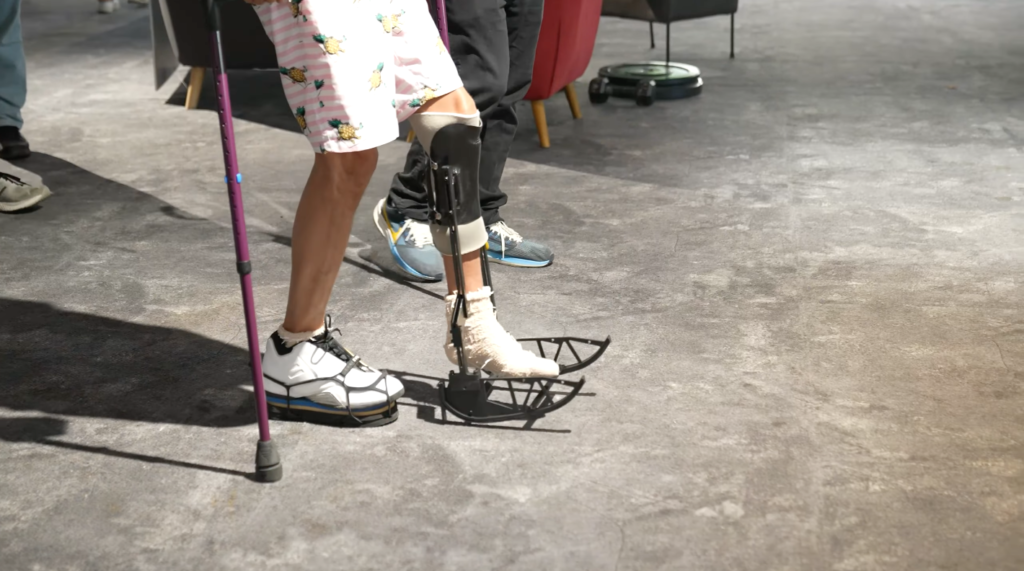
Hochstein called Tzahi’s experience one of the most emotionally rewarding solutions the program has come up with thus far.
“This is an example of it never being too late to ask for help,” he says.
Yahel Landau, another one of this year’s vets, is a 24-year-old former member of the Border Police who was wounded during a car ramming. She had lasting foot pain following the attack, to the point where she could not find any shoes that were comfortable to wear.
Sign up for our free weekly newsletter
SubscribeStratasys, a leader in 3D printing, created built-in custom insoles for a pair white Comverse sneakers that let her walk pain-free for the first time since she was wounded. Four days after the Makers for Heroes finale, Landau actually wore the sneakers to walk down the aisle at her wedding, and could even take to the dancefloor at the celebration.
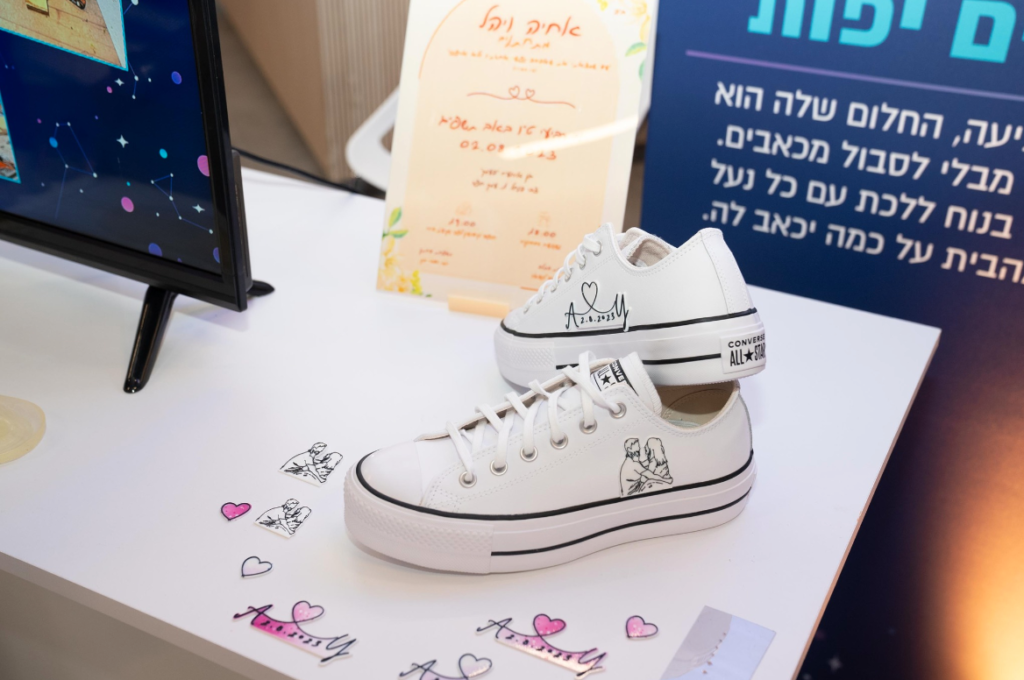
“When she came to us eight months ago, she said, ‘All I want to do is dance at my wedding and not die walking down the aisle’,” Hochstein recalls. “Seeing pictures and videos of her twirling around the dancefloor was incredible.”
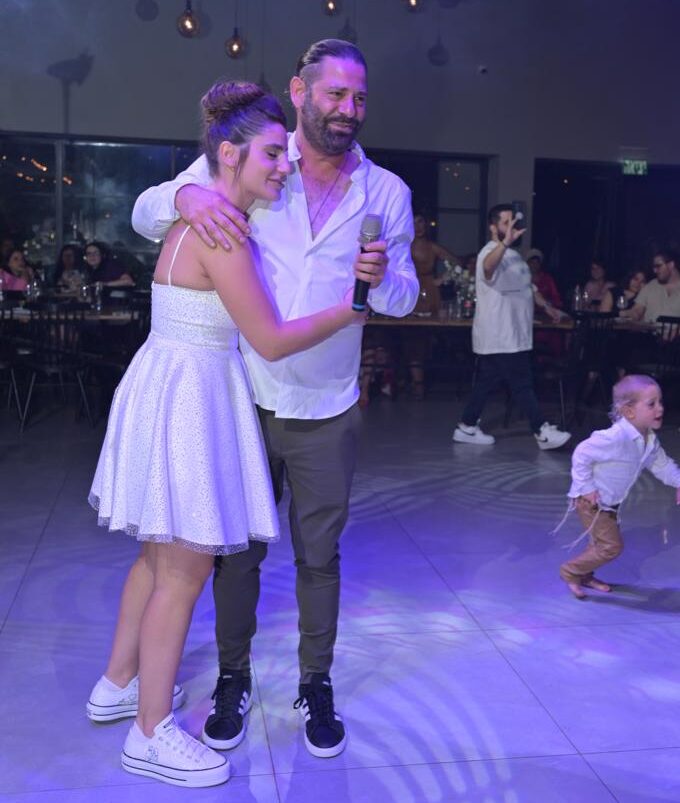
Other solutions from this year’s program included an app that helps CRPS patients monitor their pain and determine whether the treatments they are taking are helping them, and a custom PlayStation controller that attaches to the user’s upper leg so that they can play video games one-handed.
Tailor-Made Teams
Each year, the Makers for Heroes program begins with Restart accepting 50 applications from wounded veterans.
The organization then narrows that down to 20-25 proposals, based on the capabilities of its volunteers and partners. It then tries to match each vet with a team it believes are best suited to develop their solution.
While the program officially comprises just four meetings (a brainstorming session, two hackathons and the finale), Hochstein says most teams meet once every week or two weeks. The wounded veteran is also encouraged to attend to provide input.
Restart tries to also ensure that each team includes someone who cared for the vet during their rehabilitation. This means that the team includes someone who already knows the vet’s background and the challenges they face, and makes sure that the rest of the team does not push them too hard.
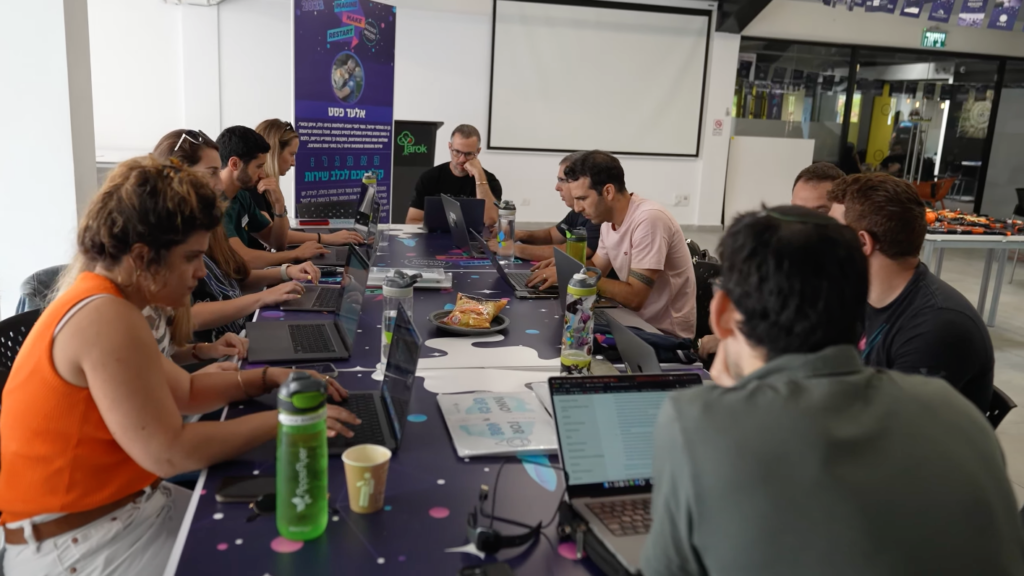
Restart was founded in 2014 to help the many soldiers who were hospitalized during Operation Protective Edge, the military operation in Gaza launched following the abduction and murder of three Israeli teenagers by members of Hamas, the militant group running the coastal enclave.
Then-Restart CEO Niv Efron told NoCamels last year that the program was created after some members of the high-tech sector visited wounded soldiers.
“They wanted to volunteer and give something back,” he said. “But they didn’t want to just make them happy – they wanted to do something meaningful.”
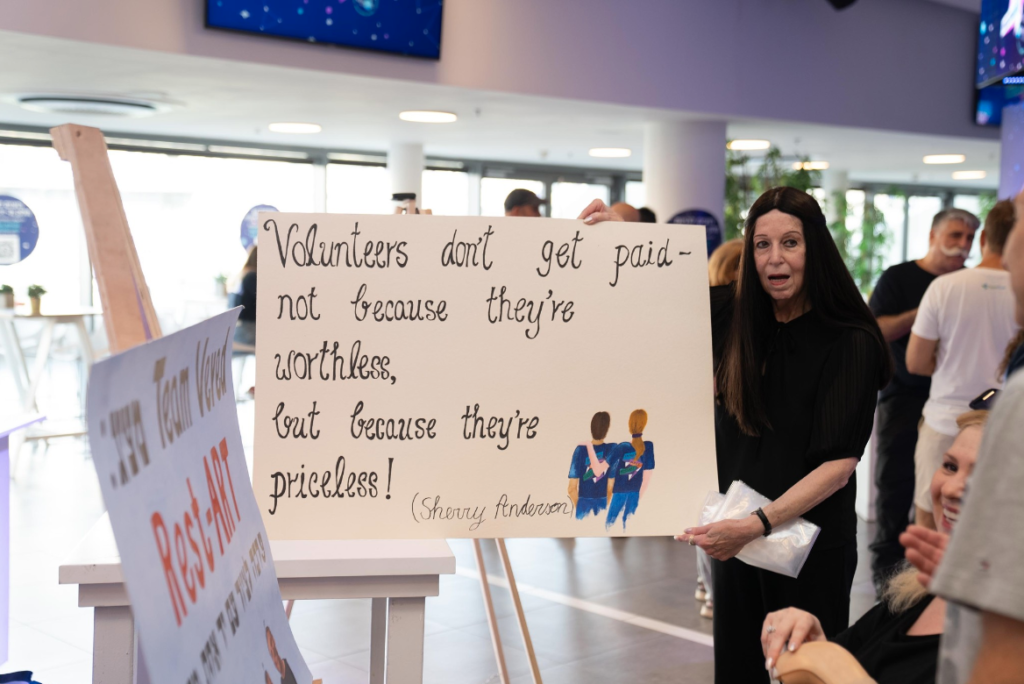
Restart hopes to soon mass produce some of these solutions and offer them to other wounded veterans in Israel, and even non-vets dealing with similar challenges.
Hochstein cites one of last year’s solutions as an example – a magnet clip for crutches that ensures they don’t clatter to the ground every time a person sets them aside.
“This year, we gave out copies of the product to almost 30 different veterans who needed them,” he says.
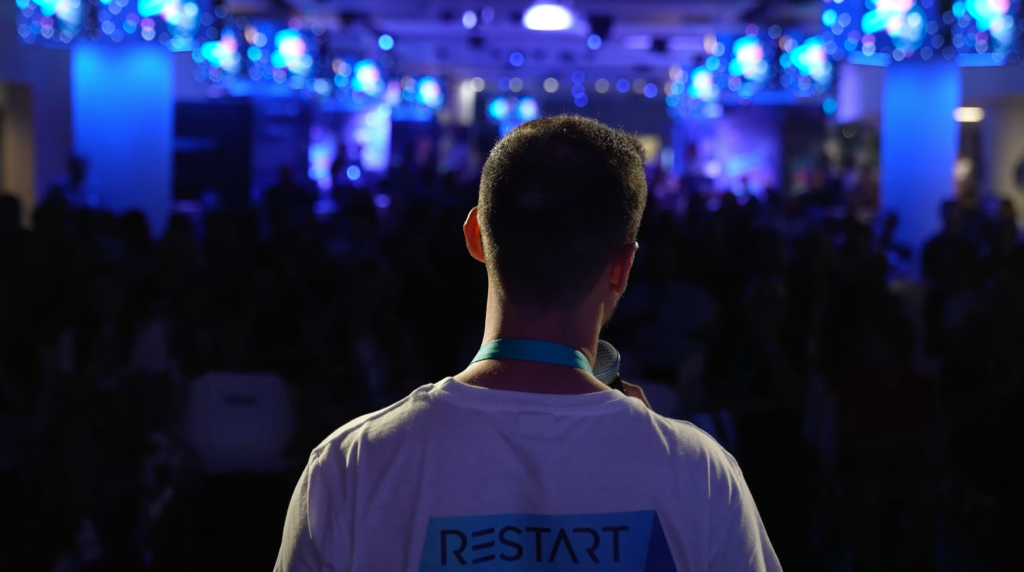
Hochstein hopes to open up product distribution so wounded veterans can simply apply for them online, and have volunteers offer service repairs when needed.
“It’s the first time we’ve actually done this in such a widespread way,” says Hochstein. “We’ve taken big leaps this year into becoming more substantially impactful.”
Related posts

Rehabilitation Nation: Israeli Innovation On Road To Healing

Harnessing Our Own Bodies For Side Effect-Free Weight Loss


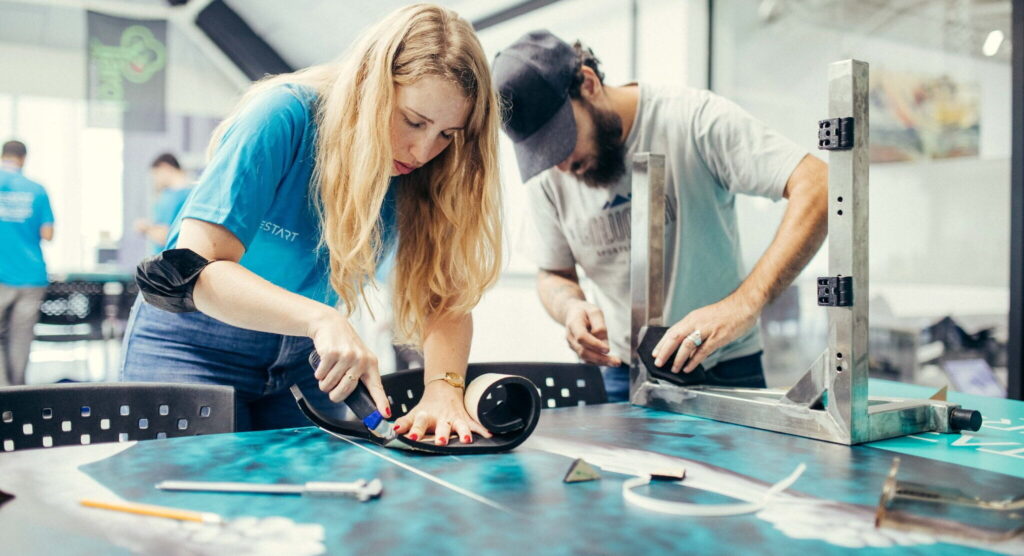


Facebook comments